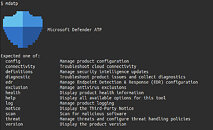- Joined
- Aug 19, 2017
- Messages
- 3,044 (1.08/day)
It is known that Microsoft has been working on bringing its Defender Advanced Threat Protection (ATP) on non-Windows platforms, and it finally has happened. Today, Microsoft is enabling users of popular Linux distributions to use its Defender ATP locally. This is an important announcement as Microsoft is bringing even more software to the Linux ecosystem. With this, Microsoft is making Defender ATP the software tool to manage and monitor security on all enterprise platforms available - Windows, Windows Server, macOS, and now even Linux. Supported distributions include RHEL 7.2 or higher, CentOS Linux 7.2 or higher, Ubuntu 16 LTS or higher LTS, SLES 12 or higher, Debian 9 or higher, and Oracle Linux 7.2.

View at TechPowerUp Main Site

View at TechPowerUp Main Site





